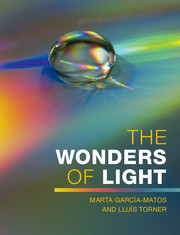PRIVACY
Published online by Cambridge University Press: 05 July 2015
Summary
Beyond approximately 10 years into the future, the general feeling among ECRYPT partners is that recommendations [on digital information security] made today should be assigned a rather small confidence level.
2008 ECRYPT European Network of Excellence in Cryptology final report.
An old saying, very popular among cryptographers, states that two people can share a secret only if one of them is dead; there is nothing that makes a piece of information more compelling than keeping it secret.
The need for private communications might seem today as momentous as ever, with an increasing number of our relevant activities digitalized and uploaded to the cloud. But keeping secrets undercover has always been of paramount importance. The wealth and fate of whole projects and enterprises have often depended on the competence of skillful agents in defending confidential information, even with their lives.
Cryptography is indeed as ancient as the civilized world. Its history is frequently pictured as an endless fight between the information hiders and the information seekers: the codemakers and the code-breakers. Each battle, eventually won by the increasing ingenuity of code-breakers, which forces in turn the springing up of yet craftier code-makers, stimulates the rise and expansion of several scientific disciplines. Some of the finest minds of all ages have been fascinated by the challenge of deciphering codes: Al-Kindi in the Middle Ages, Charles Babbage in the nineteenth century, and Alan Turing in the twentieth century, were prominent code-breakers and made fundamental advances in cryptanalysis. A priceless by-product of all these advances was a deep progress in other areas such as linguistics, statistical analysis, and computer science.
Right now, at the forefront of code-making, stand Ron Rivest, Adi Shamir, and Leonard Adleman. They are the inventors of the RSA cryptosystem that maintains security on the Internet. The system, based on the practical difficulty of factoring the product of two big prime numbers, has brought higher mathematics into the cipher arena, where we now find elements of number theory, modular arithmetic, or elliptic curves.
- Type
- Chapter
- Information
- The Wonders of Light , pp. 81 - 88Publisher: Cambridge University PressPrint publication year: 2015
References
- 1
- Cited by



